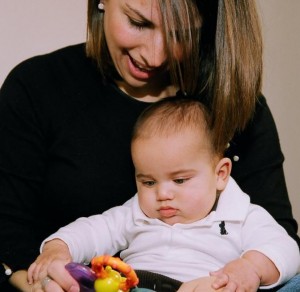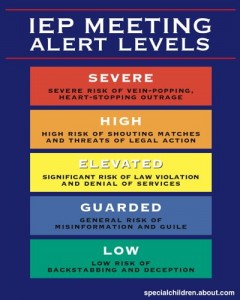The Individuals with Disabilities Education Act (IDEA) provides for free speech therapy within the public school system to all children who have a qualifying disability. But what if your child isn’t even in school yet? If you have a child under the age of three and you suspect that he might have a speech disorder, you can have him evaluated and treated with the Early Intervention program.
Surviving the IEP Meeting
Individualized Education Program (IEP) Legal IssuesUnder the Individuals with Disabilities Education Act, a child who qualifies for special education requires an Individualized Education Program (IEP). This is a written treatment plan that describes your child’s speech therapy needs and how they will be met within the public school system. After your child is evaluated by an interdisciplinary team of professionals, you will receive a notice for an IEP meeting. During this meeting, the team will discuss your child’s needs and write his IEP if he is eligible for special education.
What the Individuals with Disabilities Education Act Means For You
Legal IssuesThe Individuals with Disabilities Education Act (IDEA) was signed into law in 1990. It was intended to ensure that all children with a qualifying disability have access to a free, appropriate public education (FAPE). That means that it provides for special education services within the public school system. If your child qualifies under the IDEA, his school must tailor an education program that meets his specific needs.



